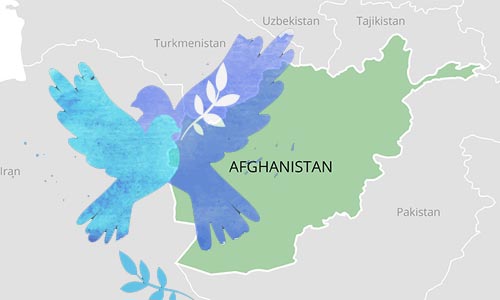The Afghan government has been calling on regional stakeholders and neighboring countries to play more active and constructive role in intra-Afghan dialogue. Recently, Afghan President Muhammad Ashraf Ghani, who spoke at the Shanghai Cooperation Organization’s summit in the Kyrgyz capital of Bishkek, called “regional consensus” significant for peace talks.
“We consider the US commitment to a political solution to be credible and are coordinating to build the necessary international consensus on peace. But without a regional consensus on peace and addressing Taliban’s interdependencies with their supporters, breakthroughs will take time,” President Ghani is cited as saying at the SCO summit.
Afghan officials believe that regional consensus is a prerequisite for making a breakthrough in peace talks between the Taliban and the Afghan government and its international allies. Neighboring countries, mainly Pakistan, and regional stakeholders are most likely to be able to push the Taliban to peace table with the Kabul government.
According to officials, Islamabad has strong leverage on the Taliban and called the Pakistani government to cooperate Afghanistan in peace talks. Moreover, President Ghani is going to pay a state visit to Pakistani in the near future to reinforce the diplomatic ties between Kabul and Islamabad and discuss the security issue and peace process with the Pakistani Prime Minister Imran Khan.
Alice Wells, the US State Department Bureau of South and Central Asian Affairs Principal Deputy Assistant, said, “We recognize that durable peace in Afghanistan requires consultation with Pakistan and Pakistan is encouraging the Taliban to negotiate. But our relationship with Pakistan is broader than just Afghanistan. We are asking Islamabad to take sustained and irreversible actions against terrorists who threaten stability in the subcontinent”.
The Afghan government called on the Taliban to agree to power sharing and participate in the upcoming presidential election. However, despite the approach of the election, the Taliban have not signaled for participation or coming to the table with the Afghan government. The Taliban’s interlocutors, US delegates, are seeking to break the stalemate and facilitate an intra-Afghan dialogue.
The Afghan government convened Loya Jirga, Grand Assembly, in late April with the hope that the Taliban would admit the call of people’s representatives in Loya Jirga for holding talks and declaring ceasefire. Nonetheless, the Jirga was proved abortive since the Taliban turned a deaf ear to the public call for peace and intra-Afghan dialogue. Subsequently, the Afghan government intensified its offensive attacks against the Taliban, who sustain heavy casualties on day-to-day basis.
The public suggest that if the Taliban hold out against direct talks with the government, military force should be used against them.
A research done by Dr. Omar Sadr, a senior researcher at the Afghan Institute for Strategic Studies, a Kabul-based think tank, said that “peace cannot be concluded through a bilateral peace accord between the government and the Taliban…. Instead what is needed is a broad based ‘national peace compact’”. It also cited President Ghani’s peace offer, which included a political framework consisting of a ceasefire and transformation of insurgents into a political party, and a legal framework consisting of lifting the sanctions and review of the current constitution.
It is believed that the Taliban are one of the most radical groups since they continue fighting despite the repeated peace offers from the Afghan government and ordinary people. Perhaps, they are not able to reconcile their fundamental ideology with the Afghan democratic principles, including human rights and women’s rights and freedoms. Thus, they persist for the establishment of an “Islamic Emirate”.
Moreover, it is widely believed that the Taliban are a pawn in a political game with a large number of mercenary fighters, who are involved in illegal profit-making activities. If peace talks reach an agreement, the Taliban militants will be restricted within the frame of law, in turn, they would not be able to make profit by illegal activities. Hence, they seek not to make ceasefire.
Afghans are better negotiators and intra-Afghan dialogue is likely to yield a positive result sooner. So, the support and cooperation of regional and global actors are crucial in facilitating intra-Afghan talks.
Now if regional stakeholders are concerned about Afghanistan’s security issue and seek to support the Afghan peace process, they have to take more practical steps. That is, it is time for regional actors to stop void promises and aimless talks and use their leverage and power to end the conflict.
Home » Opinion » Regional Stakeholders Need to Take Practical Steps toward Peace Process
Regional Stakeholders Need to Take Practical Steps toward Peace Process
| Hujjatullah Zia

